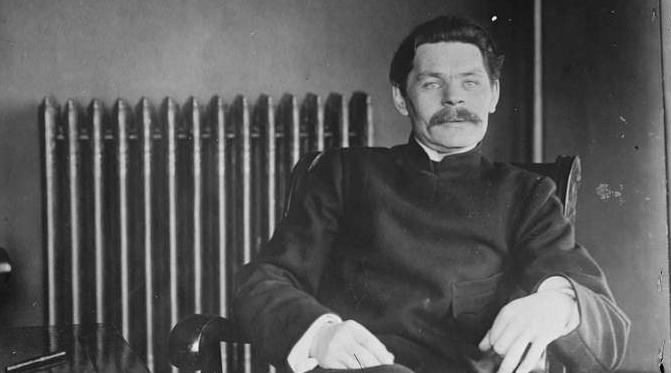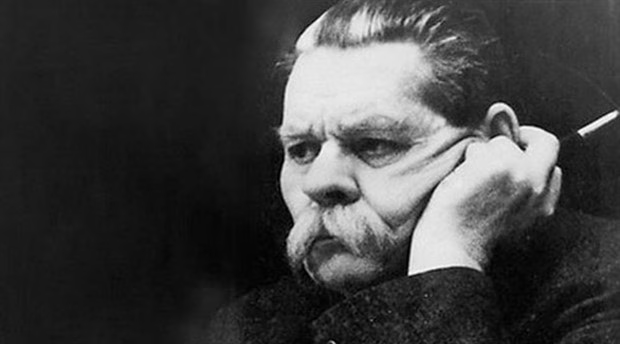Maxim Gorky is not only a towering figure in Russian literature but also one of the most impactful voices in world literature. Rising from the depths of poverty to become a champion of revolutionary ideas and enduring literary works, Gorky’s life is a striking testament to how a writer can reshape their own destiny.
A Harsh Beginning: Childhood and Poverty
Born Aleksey Maksimovich Peshkov in 1868 in Nizhny Novgorod, Russia, Gorky lost his father at the age of five. This tragedy sent him to live with his grandparents, where he faced the harsh realities of life. His grandfather was a domineering and strict figure, subjecting young Maxim to constant physical and psychological hardship. Before he could even fully engage with formal education, he was forced to confront life’s cruelties head-on.
Education was a luxury for Gorky. He attended school only briefly before taking on various jobs to support his family: shining shoes, washing dishes, working in a bakery. These grueling experiences ingrained in him a visceral understanding of poverty. Yet, these difficult years also laid the foundation for his writing career. His keen observations of life, deep character insights, and emotional intensity would later define his work.

The Birth of “Gorky”: The Bitterness of Life
The pseudonym “Gorky,” meaning “bitter” in Russian, reflected both his personal struggles and the tone of his writing. Gorky sought to voice not only his own pain but also the injustices and class inequalities of his society. For him, literature was not just an art form but a tool for resistance.
His first story, Makar Chudra, published in 1892, garnered significant attention. His subsequent works focused on the lives of the poor, the marginalized, and the working class. Unlike bourgeois heroes, Gorky’s protagonists were the underdogs of society—those who fought to survive, clung to hope, and persevered against all odds.
Revolutionary Spirit and Exile
Gorky was a powerful figure not only in literature but also in politics. His outrage against the oppressive Tsarist regime drew him into the Russian revolutionary movement. He forged close ties with Lenin and played an active role in the 1905 Revolution. However, his political stance frequently put him at odds with censorship and led to periods of exile.
In 1906, Gorky left Russia and spent significant time on the island of Capri. This period of exile was formative, enriching his intellectual growth. While continuing to write, he connected with Europe’s intellectual circles. He returned to the Soviet Union in the late 1920s, maintaining a complex relationship with the Soviet regime.

Literary Legacy: The Foundations of Socialist Realism
Maxim Gorky is considered a pioneer of socialist realism in literature. His works tell the story of society rather than the individual. His novel Mother is perhaps the clearest example of this ethos, depicting an ordinary woman’s journey to revolutionary consciousness and activism, encapsulating Gorky’s worldview.
His autobiographical trilogy—My Childhood, In the World, and My Universities—is not just a personal coming-of-age story but a sociological panorama of an era. Through these books, readers witness Gorky’s personal transformation and the shaping of his identity as a writer.
Death and Legacy
Gorky passed away in 1936, and his death remains a subject of controversy. Some speculate it was tied to Stalin’s purges or Soviet political machinations. Yet, beyond these debates, Gorky’s works continue to resonate.
Gorky was more than a writer; he was a witness to his era, a voice for the oppressed, and a consciousness born from poverty. Revisiting his story today is a reminder that literature is not merely an aesthetic pursuit but also a battleground for ideas and justice.














